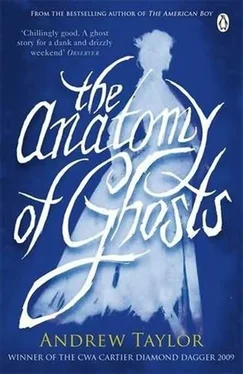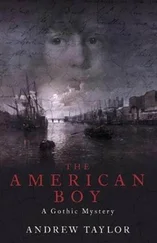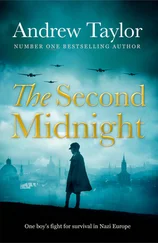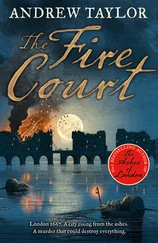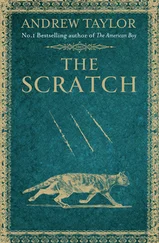Andrew Taylor - The Anatomy Of Ghosts
Здесь есть возможность читать онлайн «Andrew Taylor - The Anatomy Of Ghosts» весь текст электронной книги совершенно бесплатно (целиком полную версию без сокращений). В некоторых случаях можно слушать аудио, скачать через торрент в формате fb2 и присутствует краткое содержание. Жанр: Исторический детектив, на английском языке. Описание произведения, (предисловие) а так же отзывы посетителей доступны на портале библиотеки ЛибКат.
- Название:The Anatomy Of Ghosts
- Автор:
- Жанр:
- Год:неизвестен
- ISBN:нет данных
- Рейтинг книги:4 / 5. Голосов: 1
-
Избранное:Добавить в избранное
- Отзывы:
-
Ваша оценка:
- 80
- 1
- 2
- 3
- 4
- 5
The Anatomy Of Ghosts: краткое содержание, описание и аннотация
Предлагаем к чтению аннотацию, описание, краткое содержание или предисловие (зависит от того, что написал сам автор книги «The Anatomy Of Ghosts»). Если вы не нашли необходимую информацию о книге — напишите в комментариях, мы постараемся отыскать её.
The Anatomy Of Ghosts — читать онлайн бесплатно полную книгу (весь текст) целиком
Ниже представлен текст книги, разбитый по страницам. Система сохранения места последней прочитанной страницы, позволяет с удобством читать онлайн бесплатно книгу «The Anatomy Of Ghosts», без необходимости каждый раз заново искать на чём Вы остановились. Поставьте закладку, и сможете в любой момент перейти на страницу, на которой закончили чтение.
Интервал:
Закладка:
‘I don’t mean that.’
Frank poured himself more brandy and drank it off. ‘Well, it’s all done with now, ain’t it? And tomorrow we’ll be in London. You know, I don’t think I shall come back to the University – it don’t suit me, you see, and I don’t suit it.’
Holdsworth had the sensation that he stood at a crossroads. Behind him was the past, and before him was a multiplicity of futures, most of them dark and unattractive. He felt tired and angry and full of regret. ‘On the night Sylvia died, someone heard a struggle at the back of the Master’s Lodge. Her slippers were later found near by. She was with someone. I think it was you, Mr Oldershaw.’
‘What? You are mad. You must be.’
‘How else could you know which cloak she was wearing? Even the shape of the clasp on the cloak? No one else mentioned it. And of course she would have wanted you to escort her through the streets. Who better to escort her than her lover?’
Frank stared up at him. ‘You’re a fool, Holdsworth, as well as mad. Did you know that? Don’t you know I shall ruin you?’
‘A witness heard a scream. Was she going to wake the college, Mr Oldershaw, and make a scandal about her husband? And no doubt you feared what her ladyship would say. She is an indulgent mother but even her indulgence must have its limits. Perhaps you tried to hush Mrs Whichcote and you succeeded too well. I cannot think you wanted to kill her.’
‘This is – this is nonsense. I cannot now recall who told me about the cloak – Dr Carbury, perhaps, or one of the college servants. But someone did. They must have done.’
At the door, Holdsworth looked back. He had nothing to lay before a magistrate but a cluster of suspicions. ‘You kept a cool head,’ he said. ‘You must have locked the Master’s gate behind you and thrown away Sylvia’s key as you fled back to Lambourne house.’
Frank was staring at him, red-faced, with the empty glass in his hand. He looked a child again, and on the verge of tears. ‘Damn you,’ he said. ‘She said I must make Whichcote divorce her, and that I must marry her.’
‘Well?’
‘But it was quite impossible. Her ladyship would have prevented it. And besides…’
‘Besides what?’ Holdsworth said quietly.
Frank shrugged. ‘She was only a woman, after all. She was older than me – she had no fortune – no connections. No, no – it would not have done. You must see that.’
‘So you killed her?’
‘But I – I didn’t mean to.’
‘You attacked her.’ Holdsworth thought what a fool he had been, for the evidence had been before him all the time. What had Dr Jermyn called it? Mania furibunda . ‘Just as you attacked both myself and Mr Whichcote at the mill, and Dr Jermyn in Barnwell, and poor Mr Cross. When a difficulty presents itself to you, you are inclined to address it with violence.’
‘You can prove nothing, remember that. I’ll see you committed for slander, I’ll -’
‘You’ll travel alone tomorrow, Mr Oldershaw.’ Holdsworth paused in the doorway. ‘And remember this: you will never escape her now. Sylvia will be with you always.’
Chapel Court was deserted. The night was cloudy. Few stars were visible. Holdsworth walked through the arcade and into the darkness beyond. He crossed the wet grass towards the oriental plane and the Long Pond. There had been nothing scientific about this investigation, he thought, nothing that a man could write up in a pamphlet and put before the world. It had been a matter of shadows and nuances, of things half seen, half heard and half understood.
A matter of ghosts?
It was dark under the tree. With his arms outstretched before him, Holdsworth moved slowly beneath its canopy until he came to the bank of the Long Pond, close to the spot where Sylvia Whichcote had been found in the water. He looked through the branches. Lights burned in the first-floor windows of the Master’s Lodge. Colours had faded and shapes had become fluid, their outlines dissolving into the gathering night.
Maria. Georgie. A matter of ghosts.
The names formed in Holdsworth’s mind. With them came the memories, together with that familiar sense of emptiness. He touched them delicately with his full attention, as the tongue probes a sore tooth to assess its condition. Something had changed during these weeks in Cambridge. Something had shifted. The beloved dead were a little further away.
There was a flicker of movement on his extreme left, which he caught on the very edge of his vision. He turned his head quickly. The footbridge from the Master’s Garden was just visible, a grey curve over the water. For a moment, he thought there was something pale at the apex of the shallow arch – a sort of lightening of the gloom rather than a shape, partly obscured by the handrail. But the more he looked, the less he saw. His eyes were playing tricks on him.
Elinor?
What was he to do? He had wronged her. He had been foolish and cruel. But he could not help rejoicing too. She was innocent. Would she listen to him if he went to her?
While he stood in the darkness, with his hands in his pockets, thinking of Elinor, he became aware of sounds elsewhere in the college. In the distance, a door opened and closed. There were running footsteps in Chapel Court.
He must go to her, he thought, as soon as he possibly could, beg her forgiveness and throw himself on her mercy.
His eyes were still fixed on the bridge. For an instant, he was sure that there was someone on it, someone moving.
Elinor? His heart pounded. Nonsense, he told himself – what would she be doing outside at this time? It must be a trick of the light, a trick of the dark. But still his heart pounded and still the possibility of her remained.
There was only one way to make sure. He walked slowly along the water’s edge towards the bridge.
As he was doing so, the college bell began to ring. It sounded strange, as if further away than usual and filtered through a fog. Holdsworth stopped to listen. The bell tolled on, muted, solemn and sombre. Doors and windows were flung open. Everyone in Jerusalem was coming to unnatural life, as if this were daytime, not night.
But not quite everyone.
A muffled bell tolled for the dead: so Dr Carbury had gone at last. Elinor was free.
Holdsworth glanced at the bridge. The paleness in the dusk had slipped away.
Author’s Note
The eighteenth century was not a glorious period for English universities (by and large they managed things better in Scotland). At Oxford and Cambridge, individual colleges followed their idiosyncratic paths with little to guide them apart from their own statutes, which were at least two centuries out of date, as were the syllabuses that the universities prescribed for their students to study. By the standards of the 1780s, Jerusalem College might have been considered conservative, and some of its fellows perhaps a little eccentric; but they would not have been unusual in this.
Those who know modern Cambridge may notice that there are remarkable similarities between the fictional Jerusalem College and the entirely real Emmanuel College. I should like to emphasize that these resemblances extend only to its layout and aspects of its early history. I should also like to thank Dr Sarah Bendall, Fellow of Emmanuel, and Amanda Goode, the College’s Archivist, for their help. Dr Bendall, with Professor Peter Brooke and Professor Patrick Collinson, is the author of A History of Emmanuel College (The Boydell Press, 1999), which gives an illuminating account of the development and organization of a medium-sized college over more than four hundred years.
The Holy Ghost Club is of course fictional. There are rumours, but no hard evidence, of the existence of hellfire clubs at the universities. By their very nature, such societies can be hard to trace. There’s substantial evidence of their existence elsewhere in society, though by the 1780s most of them were growing a little tamer and more discreet in their practices than they had been.
Читать дальшеИнтервал:
Закладка:
Похожие книги на «The Anatomy Of Ghosts»
Представляем Вашему вниманию похожие книги на «The Anatomy Of Ghosts» списком для выбора. Мы отобрали схожую по названию и смыслу литературу в надежде предоставить читателям больше вариантов отыскать новые, интересные, ещё непрочитанные произведения.
Обсуждение, отзывы о книге «The Anatomy Of Ghosts» и просто собственные мнения читателей. Оставьте ваши комментарии, напишите, что Вы думаете о произведении, его смысле или главных героях. Укажите что конкретно понравилось, а что нет, и почему Вы так считаете.
